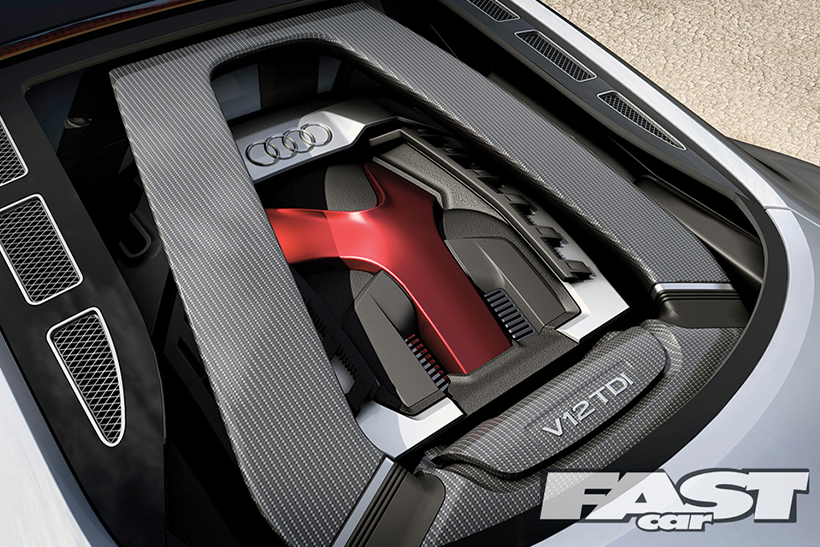Low revving economy-mobiles or big boosting torque monsters? Or how about both? We reveal all in our guide to tuning German diesel cars…
We love a good turbo diesel here at Fast Car nowadays, but if you were to go back ten years or so into our past you’d find that a diesel feature car would be almost unheard of. Why? It’s simply because until recently, diesels simply weren’t considered fast cars, but times and technology have changed things dramatically.
Whereas diesel models used to always be by far the slowest cars, these days even the least sporty diesels have got torque figures rivalling most hot hatches. In fact there are a number of diesels now that really are true sports cars, and even they still feature the main selling point of a diesel: great fuel economy. Not only that, but as the cars have improved, so has the ability to tune them, and they’re rapidly catching up with petrol powered models on this front – and are beating them hands down when it comes to torque levels.
We’re not going to try and tell you diesels are THE cars to tune, but if you need a single car that’s not only is economical and fast, a diesel really is the way forward.
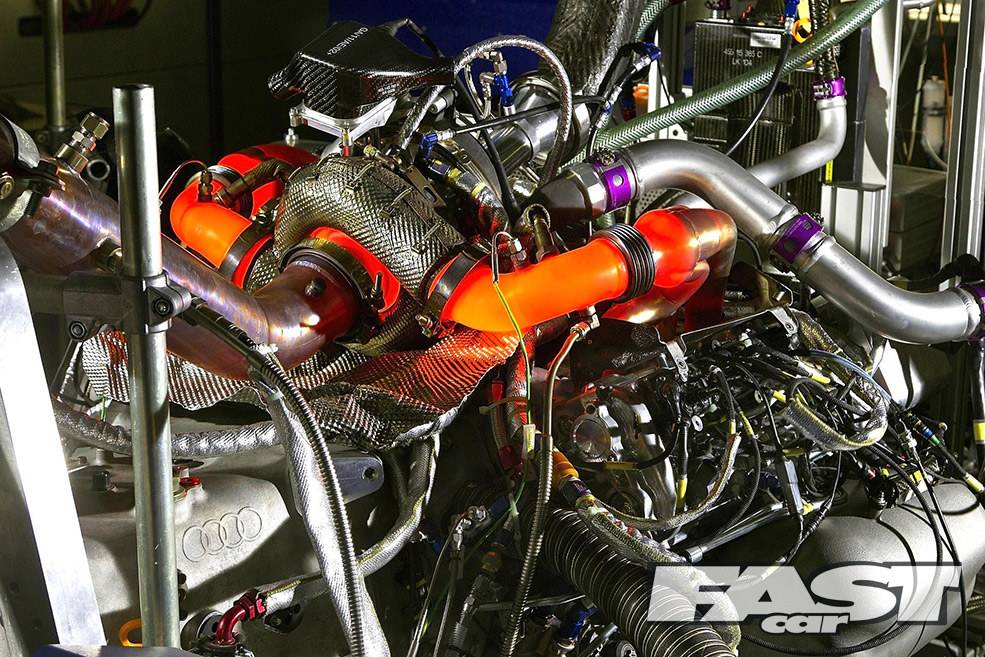
What are the advantages of tuning a diesel car?
MEGA BOOST
This is the number one reason diesels are good to tune. Non-turbo diesels are ridiculously slow, but thankfully, now almost all diesels are turbocharged. They can also handle huge boost levels with far less problems than a petrol engine, in fact many modern turbo diesels run between 1.5 and 2bar boost as standard! Running lean and pre-ignition (detonation) are the two things that are the main causes for modified petrol turbo engines to fail, but neither is an issue on a diesel lump, so even three figure boost levels are possible if you’re mad enough.
TORQUE
Big boost, combined with the very high compression ratios of diesel engines, means serious torque levels, with even standard turbo diesels often having more torque than their more powerful petrol counterparts. Many diesels have almost twice as much torque as they have power, whereas a tuned Honda Type-R engine sometimes has almost twice as much power as it does torque.
PERFORMANCE AND ECONOMY
Let’s face it, almost all of us own diesels primarily because they’re economical; the fact they can be quick is just a bonus. So it’s great to know that when you tune them they generally don’t get much less economical if done well, and on some occasions they get more economical! Even at high levels of tune they are surprisingly economical as they are set up to run incredibly lean compared to petrol engines.
RELIABILITY
Although diesels aren’t indestructible by a long shot, they can be pretty damn reliable cars. This is thanks to the same reasons they can handle mega boost with little problems, along with the fact that they generally aren’t revved as high as most petrol engines.
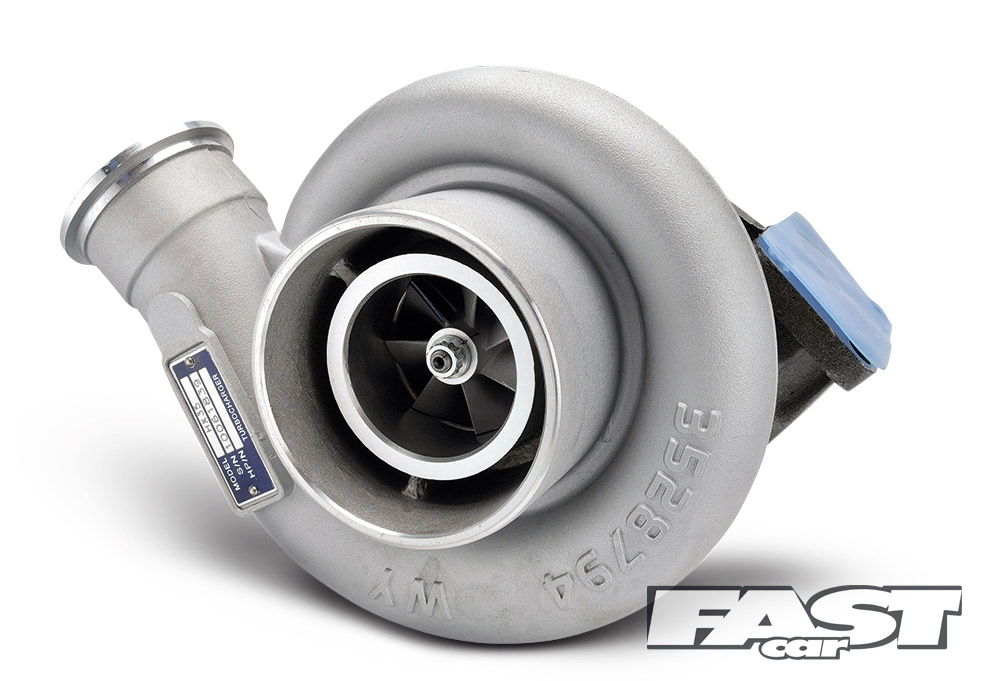
What are the disadvantages of tuning a diesel car?
LIMITED REVS
Although the common claims that diesels cannot rev high is a myth (and we’ve seen highly tuned turbo diesels revving well beyond 7000rpm), most standard and mildly tuned diesels make peak power around 4000rpm and rarely rev above 5000rpm.
BLACK SMOKE
Diesels normally run incredibly lean, and this is to prevent black smoke from the exhaust. Unfortunately, while richer fuel mixtures will increase performance, it also increases heat and the chances of black smoke pouring out your exhaust pipe. While the tuned diesel saying of “No smoke, no poke” is true to some extent – and to be honest we think plumes of black smoke from a rapid diesel can look pretty cool – it’s not something a lot of people will want to see, the Police for example…
LESS OVERALL POWER
While turbo diesels are never short of torque, they will always struggle to make the same power of a petrol engine of the same size. There are various reasons for this, but the main one is a combination of lower rev limit and the fact that, unless you want your engine to emit enormous clouds of smoke and run engine-meltingly high temps, diesels have to be run incredibly lean; far leaner than ideal for peak power.
LESS TUNING KNOWLEDGE
There are certainly some diesel tuning legends in the UK – including the likes of AMD, Darkside Developments, RS Tuning and Revo. But it’s generally true that the knowledge of diesel tuning – and availability of parts – is still far smaller than traditional petrol engine tuning. While at lower levels of tuning this isn’t a problem, for extreme tuning, it’s not uncommon for diesel fans to either gets things custom made to their specification or go shopping for parts in Scandinavia and the USA.
TOO MUCH TORQUE
Yes, it’s true, tuned turbo diesels create so much torque that it can be a real struggle to stop transmissions exploding and the wheels spinning! Big torque puts a huge strain on your car’s gearbox and clutch, and due to the large number of turbo diesels being front wheel drive, a highly tuned turbo diesel can just mean a whole lot of wheelspin. We’ve seen many tuned turbo diesels struggle for grip from a rolling start in 4th gear in the dry, and although they can be tamed, you can’t just expect to tune your diesel and not make efforts to seriously improve its traction at the same time.
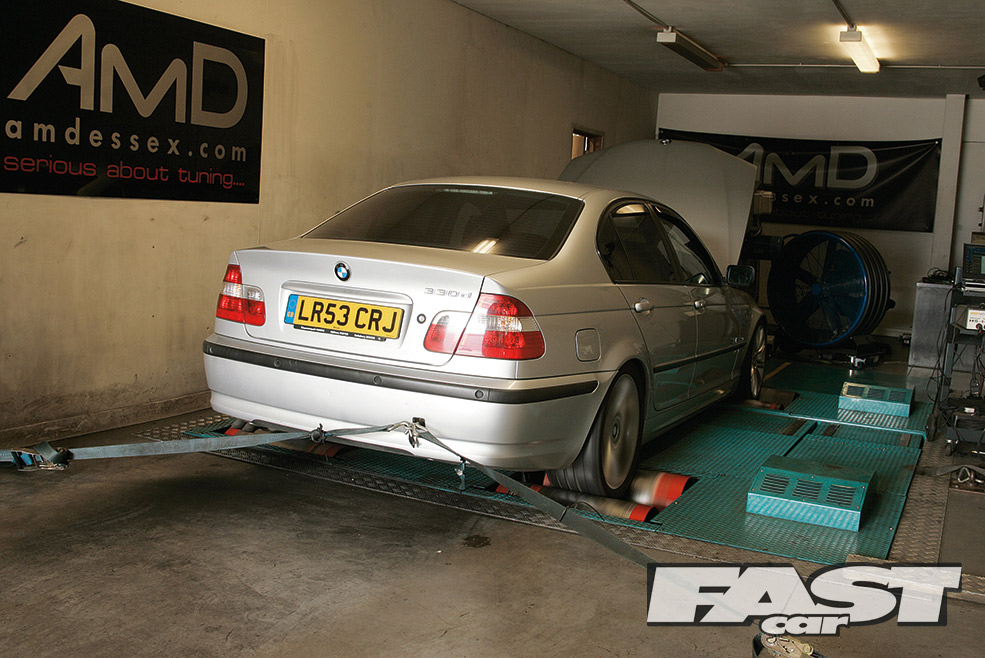
BMW DIESEL TUNING
Rear wheel drive and huge torque either means massive fun or massive brown pants moments, depending how you look at it, but either way, you can get it with a BMW.
Starting off cheap, if you want a budget rear drive diesel, the good old E36 325TDS is a decent choice. Although there isn’t a huge amount of off-the-shelf parts available, they’re basic enough to quite easily get good gains from. A big exhaust system, even bigger intercooler, induction kit, and a diesel tuning box or similar to ramp up the fuel levels can get you an effective diesel drifter. In fact, we’ve seen one in Sweden running a race mechanical fuel pump and a massive Holset HX35 turbo revving to 7000rpm!
With the more common BMW turbo diesels, it is the 1 Series and the E46 3 Series you want to look at for tuning. They’re far from slow as standard, but with some tuning you can be even overtaking the BMWs with the magic M badge…
It might surprise you to know that the 118D, 120D and 123D are actually all fitted with the 2-litre 16V N47 engines, but they’re supplied with wildly different power levels, from 116bhp and 192lb/ ft in the 118D to 204bhp and 295lb/ft in the bonkers twin turbo 123D version. A simple remap can take the 118D to 150bhp and 270lb/ft, while the 120D can go to 220bhp and a massive 360lb/ft. A remapped the 123D will be overtaking the 3-litre twin turbo petrols thanks to over 250bhp and a mighty 380lb/ft!
As you might have guessed, the big 3-litre diesels in the 330D and twin turbo 335D are even more receptive to a bit of remap loving, with a E46 330D engine pushing out 250bhp and almost 400lb/ft. And the 335D – how does 330bhp and well over 500lb/ft strike you?
Beyond simple remaps there isn’t a huge amount of tuning available yet without resorting to custom upgrades for the 1 Series diesels and the 335D, but a number of goodies can be had for the 330D when a remap just isn’t enough. Turbo Dynamics have a hybrid turbo, CA Automotive do a front-mount intercooler, and with one of the various performance exhaust systems and remapping options available, the final result can be up to 350bhp and 500lb/ft; more than enough to leave an E46 M3 in a cloud of exhaust and tyre smoke.
Something worth noting on BMW diesels are the notorious swirl flaps. These are fitted in the inlet manifold and unfortunately have a reputation of failing and getting sucked in to the engine, giving you a big repair bill. Thankfully, just like EGR removal kits that are popular on all turbo diesels to get rid of that problem, swirl flap removal kits also are available from www. i6automotive.co.uk – and will prevent your engine ever ingesting its flaps.
Finally, although a brand new engine so not many of us will be tuning it just yet, the latest 3-litre diesel 3 Series engine, can be remapped to a huge 335bhp and 475lb/ft!
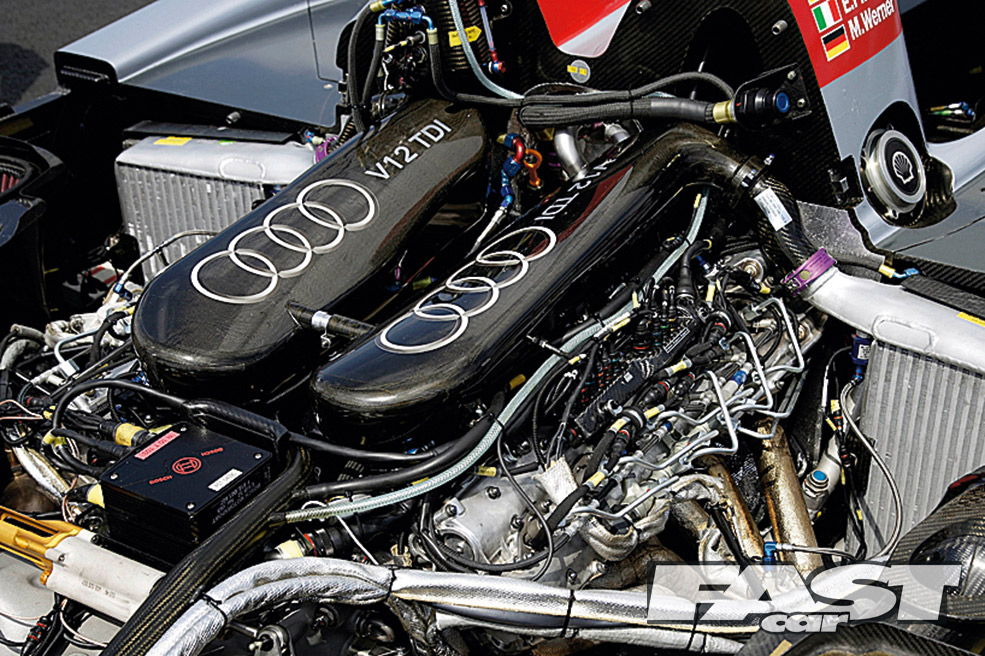
AUDI DIESEL TUNING
With Audi kicking ass in diesel powered Le Mans cars you’d imagine they’d have some pretty good diesel road cars too; and you’d be correct. Not only that, but there are also plenty of bolt-on tuning parts available for them too, such as uprated intercoolers from the likes of Forge Motorsport and THS and hybrid turbos from Turbo Dynamics and Darkside Tuning. Then there’s uprated exhausts from Milltek, Cobra and others, and of course a huge variety of induction kits and off-the-shelf remaps.
Even the most basic 110bhp Mk.1 Audi A3 1.9 TDI can be boosted to 150bhp and 220lb/ ft with a simple remap from companies such as AMD Tuning, and the more powerful PD130 versions can jump to 180bhp and a massive 280lb/ft, which is amazing when you consider how little you have done.
If you have a later A3 orTT TDI with the 2-litre 16V engine, things are even better. A remap on the PD140 version delivers power in excess of 180bhp and around 300lb/ft, and with the PD170s the remap means almost 200bhp and again, a tyre-smoking 300lb/ft.
The bigger V6 diesels in the A4s can also be transformed with just a remap. The 2.5 TDI pushes out just over 200bhp and a 300lb/ft, the later 2.7 TDI goes up to around 250bhp and 370lb/ft, and the top 3-litre version gets 280bhp and around 450lb/ft.
So what about if you got a few more pennies in the bank and you own an Audi with an even bigger turbo diesel? Good news, you’re just as well catered for in the remap department! The 4.2 TDI found in the big Audi A8s can be remapped to 370bhp and a ridiculous 650lb/ft, while the monstrous V12 TDI bumps up to over 550bhp and kicks out more than 800lb/ft!
So just a remap isn’t enough, and you want something pretty bonkers? Well although we will mention really extreme diesel tuning in a separate section, you can get pretty silly even sticking with purely bolt-on parts. For example, the 2-litre PD140 engine is able to hit over 300bhp and 450lb/ft! To achieve this kind of craziness you can buy a Darkside GTB2260VK turbo kit: bigger injectors, and along with the a bigger intercooler, exhaust, EGR delete, and suitable remap equals one crazy diesel monster.
One final thing to note – and something that makes tuning an Audi diesel quite an attractive prospect – Quattro. Many of the Audi TDI models are available in both front wheel drive and four wheel drive versions, and we don’t think we need to tell you that when you have the big torque of a well tuned oil burner, the grip of a four wheel drive is a significant performance advantage…
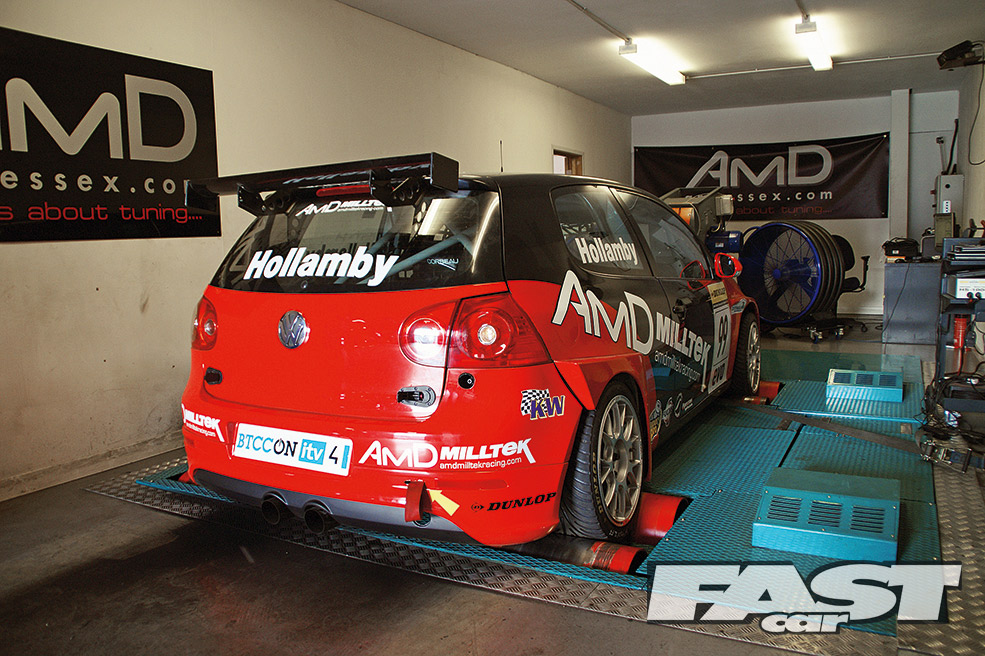
VW DIESEL TUNING
Probably the most popular of the German turbo diesels to tune, and certainly the one with the biggest variety of tuning parts available, are the VW TDI models. Most notably, the various versions of the 1.9 TDI engine found mostly in Mk.4 Golfs, has almost every tuning part imaginable available for it.
When it comes to basic remapping, the VW TDI engines are almost exactly the same as those outlined in the Audi section above, as they are indeed the same basic engine, be it the 1.9-litre 8V or the later 2-litre 16V. We won’t repeat ourselves, but in case you’ve forgot already, you can expect increases of around 40bhp and 50lb/ft on most models.
The same Darkside big turbo conversions that suit the Audi 2-litre 16V TDIs also fit VWs. But if you’re after the kind of performance increase you only get by going as far as delving in to the engine internals, the 1.9 8V lump is where it’s at…
The most power we have seen so far from the 1.9 TDI is a crazy drag car with 420bhp and 530lb/ft, but there are road-going versions even in the UK with around 300bhp and 400bhp. Big spec 1.9 TDIs are generally running Rosten H-beam rods, gas flowed heads, custom cams and uprated bearings, not to mention the obligatory bolt-on upgrades such as the big turbo conversion kit, 3-inch exhaust system, big injectors, front-mount intercooler, and much more.
As you can imagine, grip is a serious issue with the FWD Golfs, but, if you’re committed to having the fastest diesel VW you can build, you can start with a 4motion, whip out the petrol engine, and fit a TDI… it’s been done!
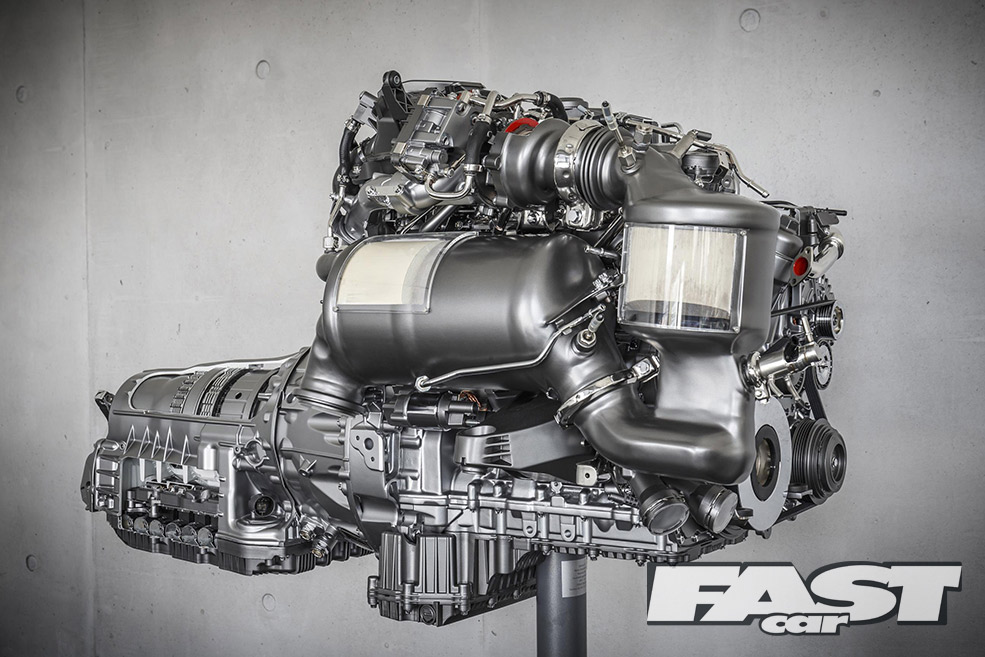
MERCEDES DIESEL TUNING
In the UK, Mercedes are the least common of the German manufacturers to tune, but when you look abroad – especially to Scandinavia – they’re the most extreme tuned diesel models.
Besides remaps, there’s very little available off the shelf in the UK for Merc diesels, but the good news is that remaps are widely available and give very impressive results. The pick of the bunch for Mercedes diesels is the C320 model, which comes from the factory with over 220bhp and 380lb/ ft but with a remap can be taken to above 270bhp and well over 400lb/ft – we’ve heard of more than 450lb/ft.
Beyond the basic remaps, things get a lot more difficult for Mercedes, and items such as front-mount intercoolers, free flowing exhausts, hybrid turbos, and so on will have to be custom made. But it’s all perfectly possible if you’re willing to put in the time, money and effort.
One big thing Mercedes diesels have going for them is that they’re well known to be ridiculously strong. Figures beyond 400bhp have been achieved on standard internals from the old 2.5-litre 5-cylinder lump in 90s Mercedes, and over 500bhp from the 3-litre 6-pots! These extreme Mercedes usually involve an enormous turbo, a conversion to a mechanical race fuel pump, and huge amounts of black smoke. Not only do these bad boys push out extreme power, they also rev as high as a petrol engine. Diesel madness!
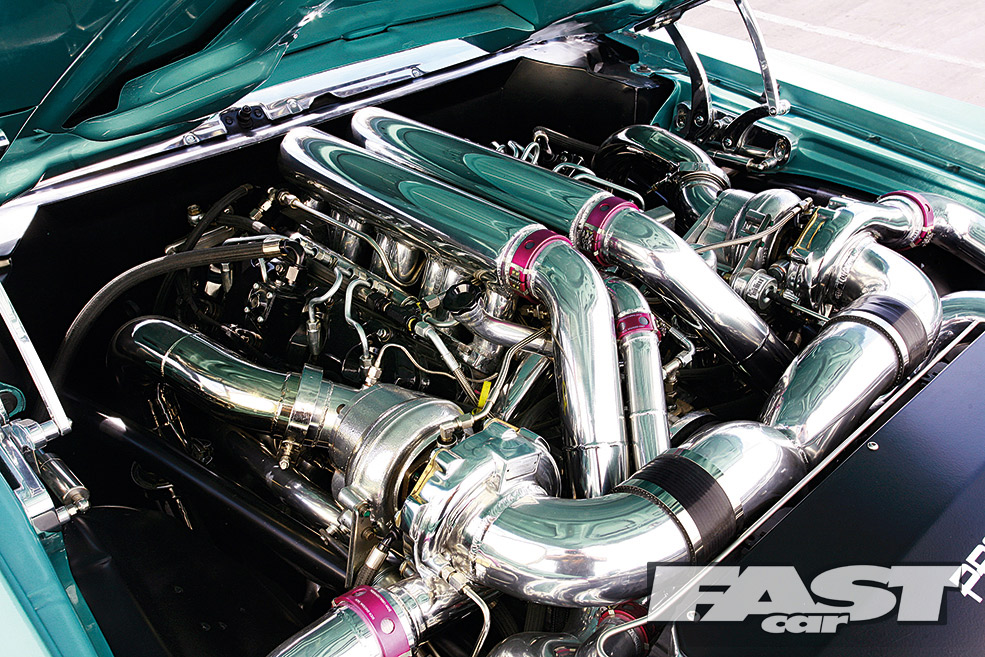
EXTREME DIESEL TUNING
While even the off-the-shelf tuning we’ve been explaining in this feature is pushing the limits of what’s drivable on the road, you can go wilder if you want to…
One of the most common ways is compound charging, which is using two or more turbos on one engine, where the bigger one(s) blow in to the smaller one(s). This gives better drivability than a single big turbo, and also allows the huge boost pressures; sometimes over 100psi.
Beyond that, despite it being a backwards step to some extent, removing the complex electronic fuel delivery systems and replacing it with an older style purely mechanical fuel injection setup is done on some extreme diesels. The reason for this is because they’ve reached the tuneable limits of the standard electronic diesel injection system, and need more fuel and more revs.
It’s crude, so expect serious black smoke and poorer low-rpm power – you can forget about fuel economy too – but for extreme diesel power, accept no substitute!
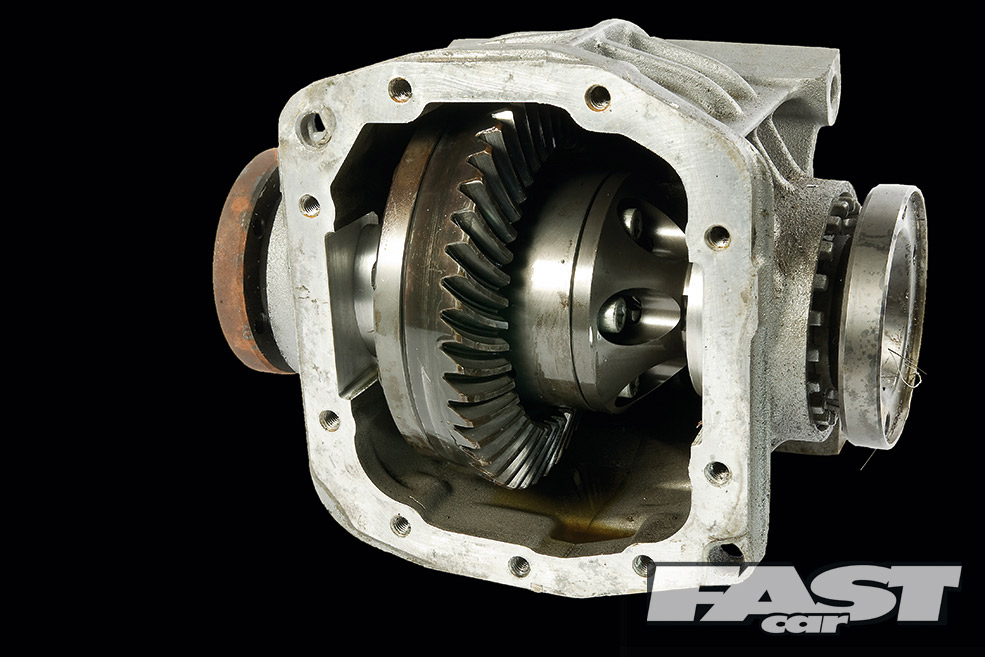
DIESEL TUNING SUPPORTING MODIFICATIONS
There’s all too often a trend in diesel tuning to stick to pure engine performance and ignore other parts of your car. But if you seriously want to get all that lovely diesel torque to the ground, you need some supporting upgrades too.
The most important upgrade is a limited slip diff, which is available for a lot of German turbo diesels from the likes of Quaife, Peloquin, Kaaz, and others. A LSD will transform the amount of traction your car has, and can make an otherwise undrivable car feel perfectly usable.
Secondly, quality tyres should always be high on your priority list. Fitting the widest and best quality ones you can will be seriously beneficial.
Finally, due to the huge torque increases even a simple remap can give, an uprated clutch will soon be required – stock items are rarely able to cope. Pay special attention to make sure the uprated clutch can really deal with your torque level; we’ve seen too many TDI owners fit an uprated clutch only to realise that it still slips under full load!
Words Stav Photos Various

